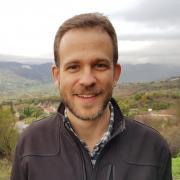My main field of research is Middle English literature, which flourished in the fourteenth and fifteenth centuries. It is during this formative period that some of the most important works of the English canon—indeed the very idea of an English literary tradition—came into being. At the same time, I often find myself approaching this culture from a comparative perspective: its relation to French and Italian literature, its reception of the classical and patristic heritage, its later fortunes, and the intersections of written texts and other media such as performance or visual illustration.
I wrote my PhD dissertation on a surprisingly rich corpus of medieval narratives featuring a righteous woman on trial. The greater part of this project addressed the reception history of Susanna and the Elders from the Additions to the Book of Daniel in the period stretching from late antiquity to the late Middle Ages. Several of my publications are dedicated to this subject, which I continue to explore in my current research. My first book is a critical edition, translation, and study of a romance whose heroine survives a series of false accusations, kidnappings, and other tribulations.
A second research project, which I embarked upon as a Mandel Postdoctoral Fellow and for which I later won a grant from the Israel Science Foundation, charts the reception history of the term fabula in antiquity, the Middle Ages, and the early modern period. This concept and the anti-literary discourse that employed it played a significant part in shaping the category that has come to be known as “literature,” which encompasses texts from different genres that have not always been perceived as related to each other.
In an age that expects culture to be immediately relatable, thereby blurring the distinction between it and commercial entertainment or self-expression, I have taken a different path. I began my studies hoping to discover works that would have otherwise remained inaccessible to me, works capable of expanding my world and challenging my perceptions rather than merely reflecting them. I now see it as my duty to assist others in this pursuit. In addition to focusing on the literature of medieval England, my teaching also covers topics that fall outside this period, from classics in translation to the history of literary theory. Promoting these fields of study poses a particular challenge in a place where English is a second or third language for most students, who are unacquainted with their basic texts and concepts when they come to University. It is also, I believe, an opportunity to examine them from an outsider’s perspective by analyzing their relation to other traditions, to marginalized groups and non-canonical texts, and to interpretive questions that go beyond their original context. I tend to design reading-intensive courses, with the goal of immersing the students in past literature and current scholarship. I consider teaching a bidirectional process: a successful class or assignment is one that allows the students and the instructor to learn from one another.
Some of the courses I have offered or plan to offer include “Introduction to British Culture I” (required BA course), “Classical and Christian Foundations of English Culture” (core BA course), “Literary Theory from Antiquity to Modernity” (core BA course), “Shakespeare’s Classical World” (core BA course), “Medieval Literature in Translation” (core BA course), “Gender and Genre in Chaucer’s Canterbury Tales” (BA seminar), “Chaucer: Dream Visions and Troilus and Criseyde” (BA seminar), “Theory and Methodology” (required MA course), “Exemplary Women” (MA seminar), “Jews, Saracens, and Other Others in Medieval Literature” (MA seminar), and “The World of Margery Kempe” (MA Seminar). I would be glad to supervise theses on nearly any topic relating to Middle English literature and its contexts.



